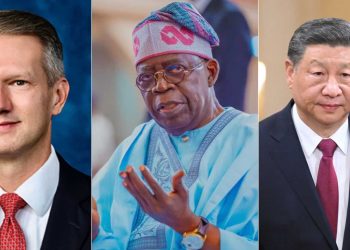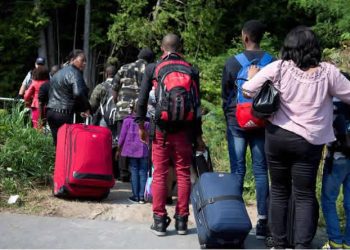The Nigeria Immigration Service (NIS) has sounded a stern warning to Nigerians, cautioning them against abusing U.S. visa privileges and urging strict adherence to visa terms and conditions.
This follows heightened concerns from U.S. authorities over repeated violations by some Nigerian travelers, which include overstaying, engaging in unauthorized activities, and altering the purpose of their visit after entry.
In a statement released Friday in Abuja, NIS spokesperson Akinsola Akinlabi emphasized that travelers must respect the exact purpose for which their visas were issued.
“Applicants are reminded that U.S. security checks continue even after entry. Violations may result in visa revocation, deportation, and permanent ineligibility,” he stated.
He also warned that actions such as overstaying a visa or violating entry conditions could attract serious penalties and bar individuals from future travel to the United States.
The advisory stressed that Nigerian students in the U.S. must remain enrolled and active in their academic programs. Dropping out, excessive absenteeism, or switching courses without notifying the necessary authorities could result in visa cancellations and jeopardize future opportunities.
U.S. officials have also ramped up efforts to curb what they term “birth tourism,” where visitors travel with the intention of giving birth in the U.S. to secure automatic citizenship for their child. As a result, U.S. consular officers are now instructed to reject visa applications suspected of this motive.
The NIS reaffirmed its ongoing collaboration with the U.S. Mission in Abuja to prevent Nigeria from facing broader visa restrictions. Compliance with immigration rules, the agency said, is crucial for preserving legitimate travel opportunities for Nigerians.
Context You Should Know:
- The U.S. has long expressed concern about visa overstays and immigration law violations by Nigerians.
- In 2020, Nigeria was listed among countries with limited access to U.S. immigrant visas due to national security gaps and poor data-sharing practices.
- High denial rates have also been recorded for Nigerian applicants seeking student, tourist, or business visas, often tied to doubts about return intent or insufficient documentation.
































